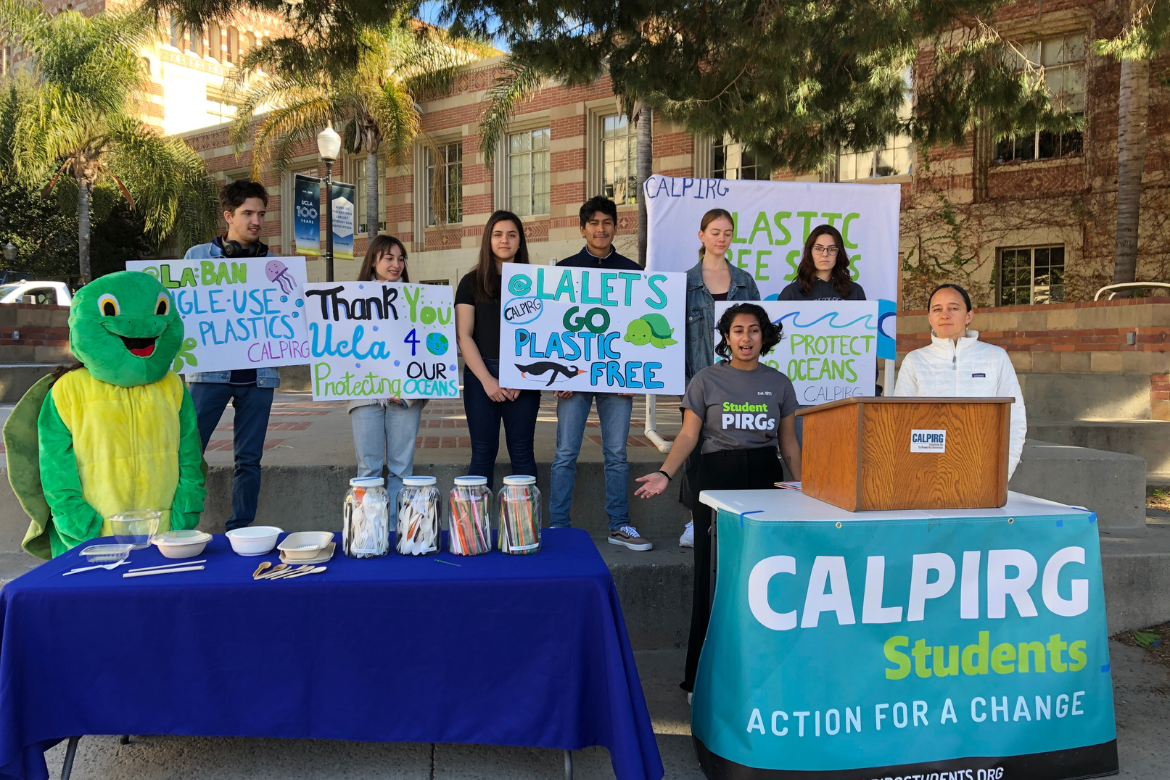Key takeaways
- UCLA continues to make progress in sustainable operations, with reductions in direct and indirect greenhouse gas emissions and total water use.
- UCLA's Leadership in Energy and Environmental Design, or LEED, portfolio expanded with the Nimoy Theater, an all-electric Gold-level classic movie house restoration.
- UCLA's single-use plastics policy has contributed to a reduction in plastics in dining facilities and vending machines.
UCLA, like every University of California location, strives to fight climate change on multiple fronts. This collective action to combat the crisis is happening through clean energy, plant-based meals, green buildings, water consumption reduction, and eliminating plastics — and that's just the operational side. There are also ongoing efforts in education, research and public service. Here are some of UCLA's sustainable standouts from last year.
Direct and indirect greenhouse gas emissions decreased due to reduced gas consumption and increased use of renewable electricity. UCLA also completed a decarbonization study to identify ways to phase out fossil fuels and switch to cleaner energy alternatives for the campus.
UCLA's food service operations got healthier, with more sustainable and plant-based options. Campus buildings also got greener, with three new Leadership in Energy and Environmental Design, or LEED, certified additions in 2024, including the Nimoy Theater, an all-electric Gold-level classic movie house restoration.
There was significant progress in decreased total water use, considering the growth of the campus population with housing added for students. UCLA has decreased total water use by over 76 million gallons per year since the pre-pandemic years, and per capita water use has decreased over 15% in that time span. Continued water reclamation efforts and landscape transformations to native plants also had a positive impact, saving water.
UCLA reduced plastics in several areas. Single-use beverage bottles in dining facilities and vending machines were completely phased out, with continuing efforts to eliminate plastic bags and single-use foodware in dining facilities.
"Students were a big part of pushing for (this policy) and it's now also a policy throughout the whole University of California, and so this was a big deal to be able to work with beverage partners and actually transition to aluminum for even the water bottles," chief sustainability officer Nurit Katz recently told an assembled group on a campus tour, highlighting the glass and aluminum bottles in a vending machine.

"We feel the need to set an example (with the single-use plastics policy). If our research is saying this is harmful to the environment and harmful to health, we want to make sure that we're transitioning our practices.
As the academic year wrapped up, several departments came together to host a sustainable move-out for student residents and commuter students living close to campus. Items such as furniture and houseware were collected and donated, which helped eliminate waste by keeping belongings out of landfills and reducing the environmental footprint of move-out.
For a full look at University of California systemwide sustainability efforts and UCLA's contributions, check out the 2024 annual report on sustainable practices.






